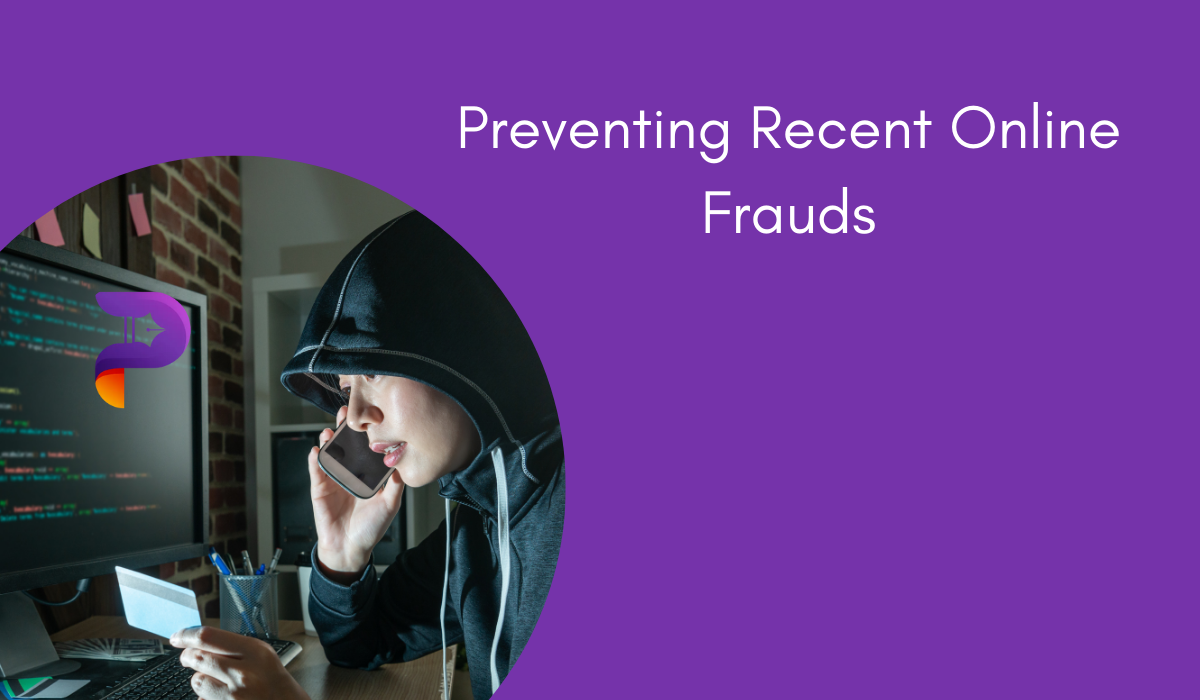
Online fraud has become increasingly sophisticated, targeting individuals across all demographics. It’s crucial to stay informed about the latest scams and know how to protect yourself. This article will educate you on the most common types of recent online frauds, how they occur, and the steps you can take to safeguard your personal information and finances.
Contents
Common Types of Recent Online Frauds
- Phishing Scams: One of the most prevalent forms of online fraud, phishing involves fraudulent emails, messages, or websites designed to steal personal information. These scams often masquerade as legitimate communications from banks, online services, or other trusted organizations.
- KYC Fraud: Scammers pose as representatives from banks or financial institutions, requesting Know Your Customer (KYC) details. They may call or send messages asking for personal and banking information, which they then use for unauthorized transactions.
- Online Shopping Scams: Fake e-commerce websites or deceitful sellers lure buyers with unrealistically low prices. Victims pay for products that never arrive or receive counterfeit items.
- Investment Scams: Promising high returns with minimal risk, these scams often target cryptocurrency enthusiasts and other investors. Fraudsters use sophisticated pitches to convince victims to invest large sums of money, which are then stolen.
- Tech Support Scams: Fraudsters pose as tech support agents, claiming your device is infected with malware. They trick victims into granting remote access to their devices, leading to theft of personal information and financial data.
How These Frauds Occur and Warning Signs
- Phishing Scams: Typically, these scams start with unsolicited emails or messages containing urgent requests, unusual links, or attachments. Be wary of messages asking for immediate action or providing suspicious links.
- KYC Fraud: Fraudulent KYC requests often come from unexpected calls or messages. Genuine banks will never ask for sensitive information via these channels. Always verify the legitimacy of such requests through official contact numbers.
- Online Shopping Scams: Beware of websites offering products at prices that seem too good to be true. Check for poorly designed websites, lack of contact information, and customer reviews.
- Investment Scams: These scams often promise guaranteed high returns with little to no risk. Be cautious of pressure tactics urging you to invest quickly without thorough research.
- Tech Support Scams: Unsolicited calls or pop-up warnings claiming your device is infected should raise red flags. Legitimate tech support will not contact you out of the blue to fix a problem you were unaware of.

Consequences of Falling Victim to Online Fraud
Falling victim to online fraud can have severe consequences:
- Financial Loss: Direct theft of money through unauthorized transactions can drain your bank accounts and credit cards.
- Identity Theft: Fraudsters may use your personal information to open new accounts, apply for credit, or commit other frauds in your name.
- Emotional Distress: The stress and anxiety from financial loss and the invasion of privacy can be overwhelming.
- Legal Issues: Your personal information could be used for illegal activities, leading to potential legal complications.
Protecting Against Online Fraud
To protect yourself from online fraud:
- Awareness and Education: Stay informed about common fraud tactics and warning signs. Knowledge is your first line of defense.
- Secure Practices: Use strong, unique passwords for all your online accounts and enable two-factor authentication wherever possible.
- Verification: Always verify the identity of the person or organization requesting information. Contact them through official channels.
- Caution with Links: Avoid clicking on suspicious links or downloading attachments from unknown sources.
- Regular Monitoring: Regularly check your bank statements and credit reports for any unauthorized transactions or activities.
Steps to Take if Targeted or Victimized
If you suspect you’ve been targeted or fallen victim to online fraud, act quickly:
- Report the Fraud: Contact your bank, credit card company, and relevant authorities immediately to report the fraud.
- Change Passwords: Update passwords for all your online accounts, prioritizing email and financial accounts.
- Monitor Accounts: Keep a close watch on your financial accounts for any suspicious activity.
- Freeze Credit: Consider freezing your credit report to prevent new accounts from being opened in your name.
- Seek Support: Reach out to organizations like the Federal Trade Commission (FTC) or local Cyber Crime Portal agencies for assistance.
Conclusion
By staying vigilant and informed, you can protect yourself from the ever-evolving tactics of online fraudsters. Remember, the key to preventing fraud is awareness, caution, and prompt action if you suspect something is amiss. Stay safe online!





